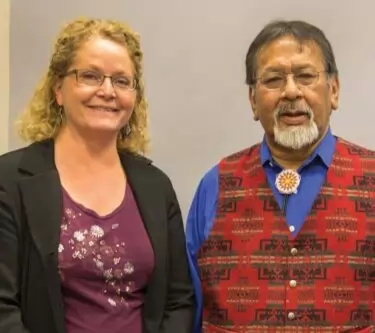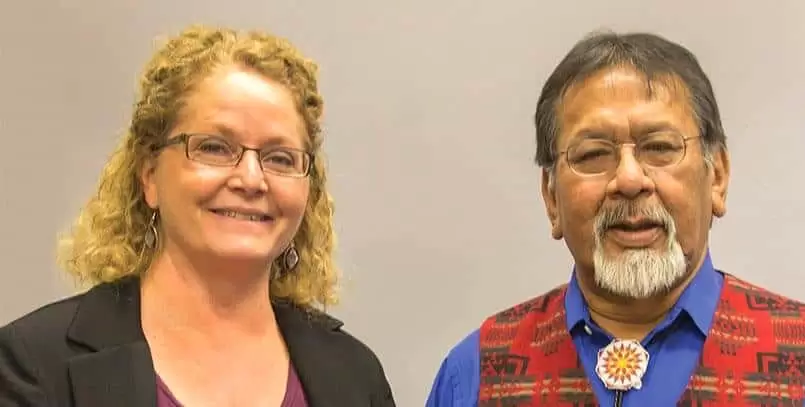
The care of Native American children in this country has been an issue that evokes great emotion among many and which caused significant hardship for a number of individuals in the past decades. It is an issue that has resulted in struggles for many struggles that a person cannot understand unless you had lived during this time or been in the shoes of an Indian child before the year 1978. This was the year after which Indian children no longer had to fear being placed into a foster home that was not of their Native culture. They didn’t have to worry about going to a house where no one of their heritage lived and no longer had to fear ending up feeling like a laborer in a non-Indian home. They no longer had to eat food they were not familiar with, and they no longer had to try to familiarize themselves with a religion of which they had no concept or understanding.
Nearly one in four Native American children were removed from their homes and placed in non-Indian homes prior to that year, and it is something most have never forgotten. The years after 1978 offered Indian children the chance to hang onto who and what they were within their hearts and to know their own culture if they had to be removed from their own homes for any reason. The year 1978 was very important Indian children as this was the year that the Indian Child Welfare Act (ICWA) was passed by the U.S. Congress and became the law of the land.
ICWA is a federal law that is meant to keep American Indian children placed with American Indian families when they cannot stay in their birth home. The intent of this is to, “protect the best interests of Indian children and to promote the stability and security of Indian tribes and families” (25 U.S.C. § 1902). ICWA is an integral policy framework on which tribal child welfare programs rely. It provides a structure and requirements for how public and private child welfare agencies and state courts view and conduct their work to serve tribal children and families. It also acknowledges and promotes the role that tribal governments play in supporting tribal families, both on and off tribal lands. However, as is the case with many laws, proper implementation of ICWA requires vigilance, resources, and advocacy. (Cited from www.nicwa.org)
But as time would show, the state of Wisconsin had poor compliance numbers with ICWA, and it seemed obvious that something had to change in the application of this federal law. With ICWA not always working in the state, work began on the Wisconsin Indian Child Welfare Act (WICWA) in 2007 with a major goal being to keep Indian children united with their culture if they needed to be removed from their family. The 11 Wisconsin tribes and Wisconsin agencies, therefore, began meeting to address this issue and to modify ICWA. From those meetings, an uphill process to address this issue began. After many disagreements, multiple headaches, and considerable sweat and tears, both houses of the legislature passed the WICWA bill unanimously in December 2009. This was a remarkable accomplishment as NO bill ever passes unanimously, and that made this a particularly noteworthy event.
With this brief background information, the meat of this article lies within this community and the surrounding area. There is one man within the FCP community who knows all about WICWA because not only does he deal with it on a day-to-day basis in his work, but he was one of the thousands of Indian children taken away from his family in the 1960s and placed into a non-native home. He, along with many others from this area, has lived the nightmares of young Indian children who were taken away by the state because the state thought the homes were not adequate to safely raise children. Studies actually show that from 1969 and 1974, 25-35 percent of American Indian children had been separated from their families and placed into foster care, institutions, or adoptive families that were non-Native.
The man being referenced in this article is Eugene “Fugie” White-Fish who is also the Chief Judge for the FCP Tribal Court. White-Fish, along with other American Indians, were asked to help in a lm created by Susan Reetz, who is a partner with Rucinski & Reetz Communication. She is also a writer, director, producer, and project manager for lm, video, multimedia, and print. Reetz, along with Michelle Danforth, produced this lm about the Wisconsin Indian Child Welfare Act, and it was funded by the Midwest Child Welfare Implementation Center (MCWIC), Ho-Chunk Nation, Oneida Nation, and the FCP Foundation.
The film is called “Missing Threads: The Story of the Wisconsin Indian Child Welfare Act”. It does an excellent job of portraying the steps and uphill battle those Wisconsin agencies and the 11 tribes had to take in order to have this bill pass. In addition, it also shows another more personal side of the story of which most people are unaware. It shows the stories of two American Indian children who were pulled away from their homes and families and placed into either foster care or an institution for adoption. It follows the story of White-Fish and of Loa Porter, a member of the Ho-Chunk Nation, and describes the struggles they faced and shares the memories they had after being taken away from their families. They speak about the demons they faced later on in life that were a result of having been placed in homes that were not of their own family or culture. They shared their feelings about the families who treated them as laborers and how they were never loved like the “real” children of these families.
White-Fish recollects the feelings of inadequacy, the feelings of not belonging, and of not being wanted or loved. But as White-Fish would learn from his grandmother later on in life, getting his education was the best thing he could have done to help get rid of these demons and to become the man he is today. He is a man who came back to work for his people and by doing so, he has helped many along the way in part from lessons he learned himself. Porter said within the lm that she graduated second in her class, and she then went onto college and was an Indian Child Welfare Consultant for Wisconsin Department of Children/Families and worked closely with both ICWA and WICWA.
It is well worth taking the time to watch this lm if you are of Native descent or if you have close family or friends who are Native. It is an eye opening production that is both informative and powerful and it will really pull at your heartstrings—especially if you know nothing of this subject and its history in our society.
This film has been shown at ArtStart in Rhinelander, Wis. and will be shown at the Green Bay Film Festival, Saturday March 5, 2016. White-Fish is in the process of making sure the lm is also shown here at the FCP campus but a date for this has not yet been set. De nitely keep your eyes open as PTT will have information in the future as to when this showing will be. It is a lm that both young and old should see and it only lasts for about 55 minutes. Viewers will have a new appreciation for the hardships that these children faced and the struggles they went through later in life as a result. Like White-Fish says, “Imagine someone coming into your home and taking your child away and putting them in a culture that is not of your own. Imagine how you and that child would feel.” It will really give the viewer a new understanding of the importance of WICWA and a new respect for the commitment of those who worked so hard to have this Act made law in our state.
As the lm opens it states, “Children are the threads connecting our cultures past to its future. When a thread is missing the fabric of our culture is in jeopardy.” Those words mean a great deal in any culture and hopefully we, as human beings, will never forget that again.
[PDFDownloadButton url=”https://www.fcpotawatomi.com/wp-content/uploads/2015/12/January-1-2016.pdf” title=”January 1, 2016 – Full Issue”]

